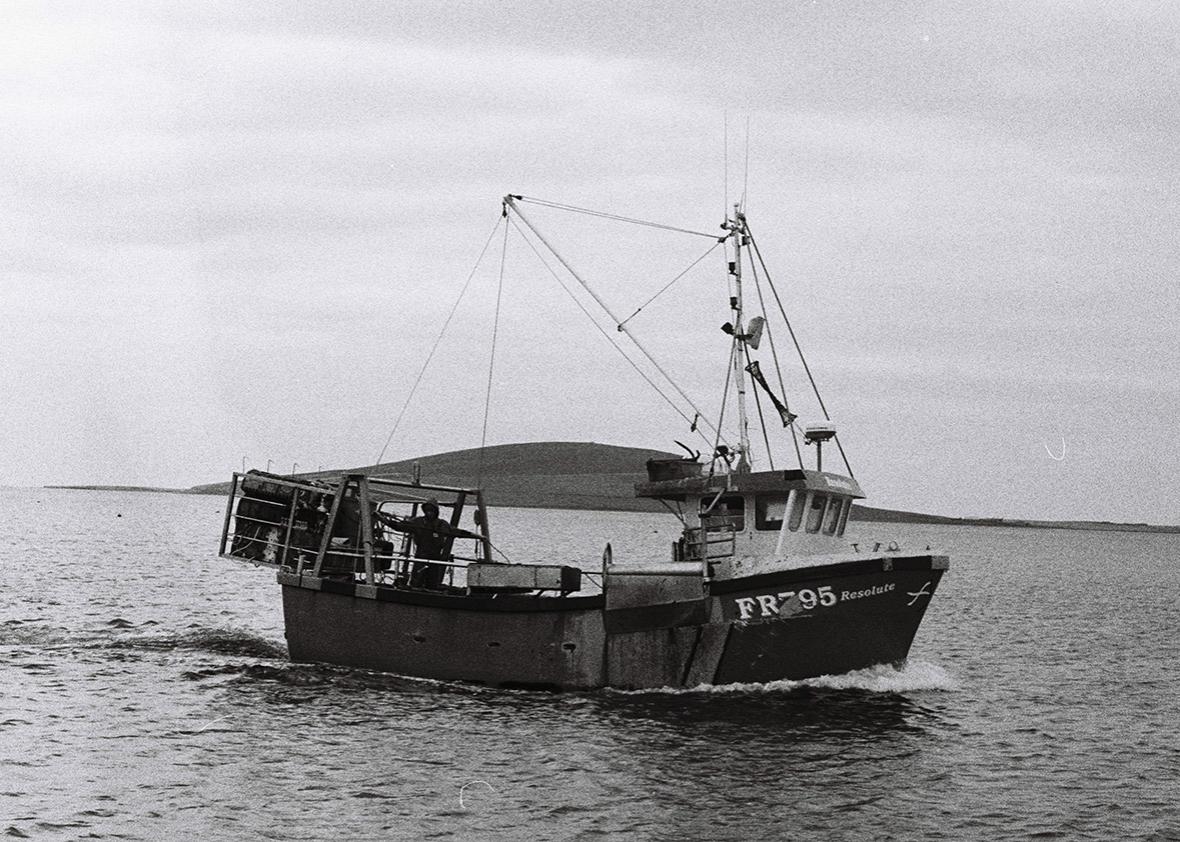Each week, Roads & Kingdoms and Slate publish a new dispatch from around the globe. For more foreign correspondence mixed with food, war, travel, and photography, visit its online magazine or follow @roadskingdoms on Twitter.
It’s 4 a.m., and the boat’s spotlights, affixed to both the wheelhouse and a spindly mast, illuminate the greasy deck. The Launch Out, a 60-foot prawn trawler based out of Pittenweem on Scotland’s east coast, mows through the waves on its way toward the fishing grounds. Inside the wheelhouse, the captain rolls matchstick-thin cigarettes and checks his course on the GPS. Below the deck, his two sons fumble with their yellow oilskins and ready their orange rubber boots. Outside, I watch as the ink-black sea slaps into the boat’s hull, rocking it like a cradle. The wooden deck creaks, the water fizzes, and the wind howls through the hood of my jacket.
“Aye, it’s a bit choppy out there, but you’ll just have to get used to it,” says Jim Wood, the Launch Out’s captain, from the door of the wheelhouse.
In the darkness of the cabin, only the pale, green glow of the sonar illuminates Jim’s face. He sits there chewing on his cigarette, smoke rising from his mouth in a ghostly fog around his head. William, his eldest son, lounges next to him, snacking on an energy bar. As he munches noisily, I choke on the thick, diesel-tinged air seeping from the engine below.
“You’ve gone a bit a quiet,” William jokes.
I nod bashfully, swallowing back the bile lodged in my throat and trying to steady the nauseating rock of my brain. “It’s gonna be a long day for you if you feel that way already!” he continues. “What would your Granda say?”
But I don’t have time to think of that. I stumble out on to the slippery deck, the boat pitching violently, to vomit into a bucket. William and Jim laugh.
* * *
Like Jim Wood, my grandfather was a North Sea fisherman. His stories taught me that being a fisherman was a life of relentless work; sleepless, gut-churning nights; and endless days punctuated only by the throb of the boat’s engine. He spoke to me of 60-foot waves, “great lumps o’ water that smashed intae the boat’s hull and flopped ontae the deck,” and of frothing swells and “screamin’ gales” that ravaged his nets and ruined his days. He described a man’s world throbbing with bravado—a world into which women could not enter. Like most fishermen, my grandfather could not live without the sea. “Us sea dogs, we have saltwater running through our veins, nae blood,” he would say.
There are now only 4,000 active fishermen in Scotland, down from 8,000 in 1970. Since 1996, the size of the Scottish fleet has been reduced by more than 219 boats, and where there were once 20 flourishing harbors scattered across its coast, there are now only three. The problem, fishermen say, is the European Union, which has thwarted the British fishing sector since the implementation of the Common Fisheries Policy, or CFP, in 1983. Indeed, what has been for years a divided industry, famous for its ruthless competition and infighting, has united behind Britain’s decision to leave the EU. While 60 percent of Scotland’s population voted “Remain” in last year’s Brexit referendum, more than 90 percent of its fishermen did the opposite.
I had always wanted to put reality to my grandfather’s stories, and there seemed no better time to plunge into the churn and chuck of the North Sea than at the most critical time in the industry’s recent history. So, I boarded the Launch Out in the hope that I might understand how these men live and work, how they confront the constant danger of one of the world’s most treacherous seas, and how the political climate could change their industry—for better or worse.
* * *
About 30 minutes after my sudden exit, I roll—cloggy-eyed, swollen-headed, and slightly embarrassed—into the wheelhouse to talk to Jim. At 62, he has been at sea for some 30 years. He has a wind-burned face, heavy bags under his eyes, and rough workman’s hands cracked like old plaster. His boat was built in 1966 and was his father’s before him. His two sons, William and James, will take the vessel on after he retires. “Fishing runs in the blood,” he says.
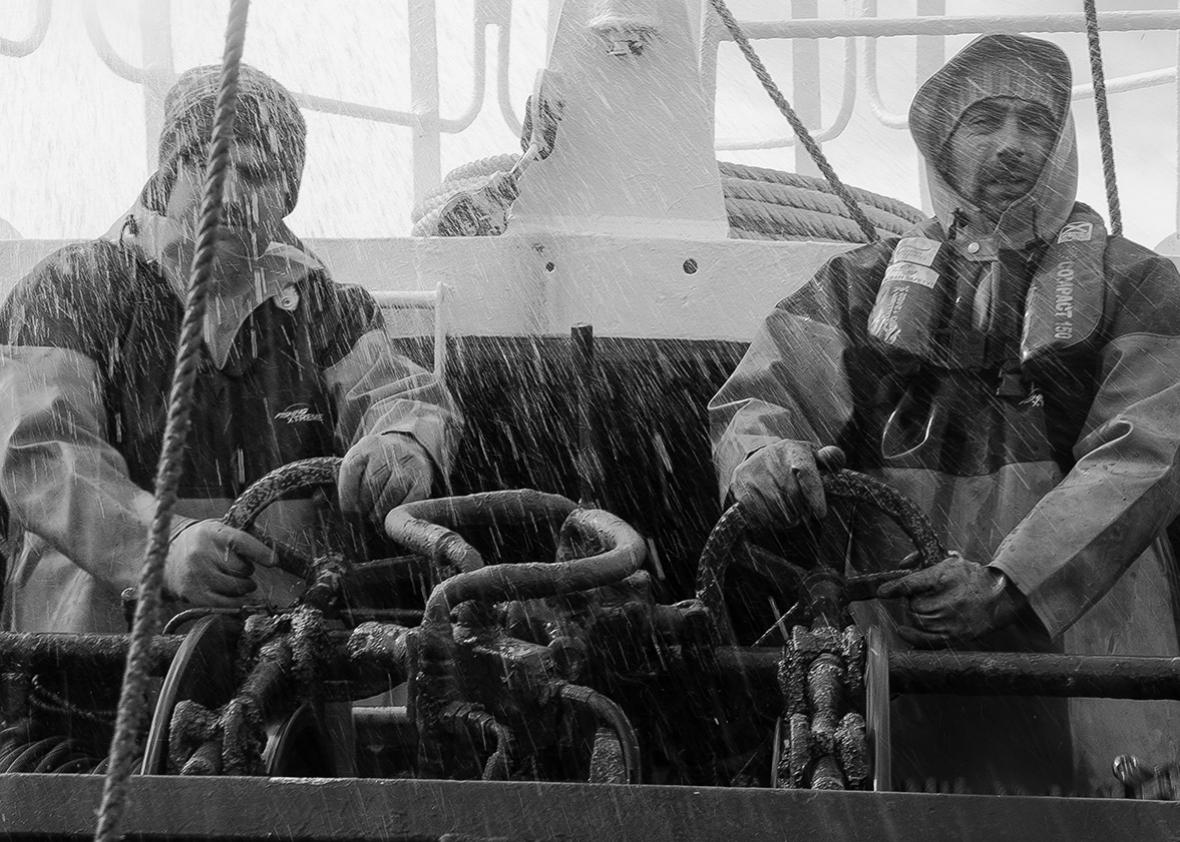
Denis Dobrovoda
Jim’s biography reads like a typical fisherman’s except that, counter to most of his industry, he voted to remain in the EU. He owns his boat outright, and the prawns he catches are in high demand. “I’m a small-time fisherman, and I didn’t see the EU affecting me so much. I was able to vote “Remain” for reasons outside of fishing.” Now that Brexit has been called, Jim is concerned for the future. He is unsure of the deal Scottish fishers will get after the CFP is gone.
The Common Fisheries Policy was designed to manage all EU waters as a shared resource, giving member-state fleets equal access to fish everywhere; in other words, a French fleet has the same right to fish Scottish waters as a Scottish one. It also aimed to regulate Europe’s fishing activities so that fish stocks were conserved and that fishing, as a trade, was preserved. Its intentions may seem good, but according to most Scottish fishermen, the reality it has created is not.
“The policy has killed us,” John Buchan, a North Sea skipper and Brexit spokesman, says. “It denies us exclusive access to our fish and forces us to compete with huge amounts of foreign vessels in our own waters.”
Buchan tells me that ships from 12 different nations fish in Scottish waters and that, in 2012, foreign boats spent more than 20,000 days fishing in the Scottish zone. “They’re stealing fish from our waters,” he says. Like Buchan, many of his contemporaries find it outrageous that 60 percent of the fish caught in U.K. waters are landed by EU fishermen, especially when compared with the fact that only 21 percent of the fish landed in EU waters are caught by their British counterparts.
“We have the right to 200 nautical miles that surround our coast,” says Alan Hastings, a representative from the pressure group “Fishing for Leave.” “We want to get back the waters that were taken away from us when Edward Heath, the then–prime minister, entered us into the EU.”
Hastings is referring to a 1982 United Nations convention that states that a country has special rights to its marine resources within an exclusive economic zone of 200 nautical miles. The law was never implemented due to both Britain’s membership in the EU and the London Fisheries Convention of 1964, which also acknowledges rights of access to U.K. waters.
Despite the fact that the current British government has announced it will leave the London Convention and possibly the CFP, many EU advocates see the move as irrational. For them, the notion of national fish stocks is absurd. Baroness Kathryn Parminter, deputy leader of the Liberal Democrat party in the House of Lords, says, “The reality is that fish do not respect borders, so the only way to prevent overfishing is to work in close cooperation with our European neighbors.”
Moreover, EU supporters add that even if Britain withdrew from the CFP, it would still be subject to restrictions on the total number of fish taken from the seas under international law and would still have to negotiate with non-EU states such as Norway, Iceland, and the Faroe Islands. Collaboration, they say, is inevitable.
* * *
At about 6:30 a.m., just after sunrise, Jim switches off the Launch Out’s engines, and the boat lulls amid a steady swell of slate-gray water. ”We’ll shoot our gear out here,” he says through a fog of cigarette smoke. He calls below deck, and his sons rise from their quarters.
William strides to the stern of the boat and begins the process of releasing the net into the water. Wires scream violently through the pulleys above my head, shooting the net into the sea.
William and his father untie the trawl doors, two massive wrought-iron boards, which rest on either side of the boat. They attach these doors to two wires and drop them in the water. The doors weigh down either side of the net, widening its diameter, while the floats on the headline rope, which form the net’s top lip, counteract their weight, causing it to open like a mouth.
Jim returns to the wheelhouse and kicks the boat into gear, and we chug slowly across the swell. Behind us and below the water, the net follows like a giant windsock swallowing all the prawns on the seabed.
“I think the industry will have to collaborate with EU more than it wants to,” says Jim, settling in behind the ship’s wheel. “But to what extent, I dinnae ken anyone who knows that.”
Every year, the EU acts as one nation, on behalf of its members, including the U.K., at the North East Atlantic Fisheries Commission. There, it negotiates with non-EU states on how stocks should be managed; what the total allowable catches, or TACs, for each species should be; and how much of each TAC should go to each member of the council.
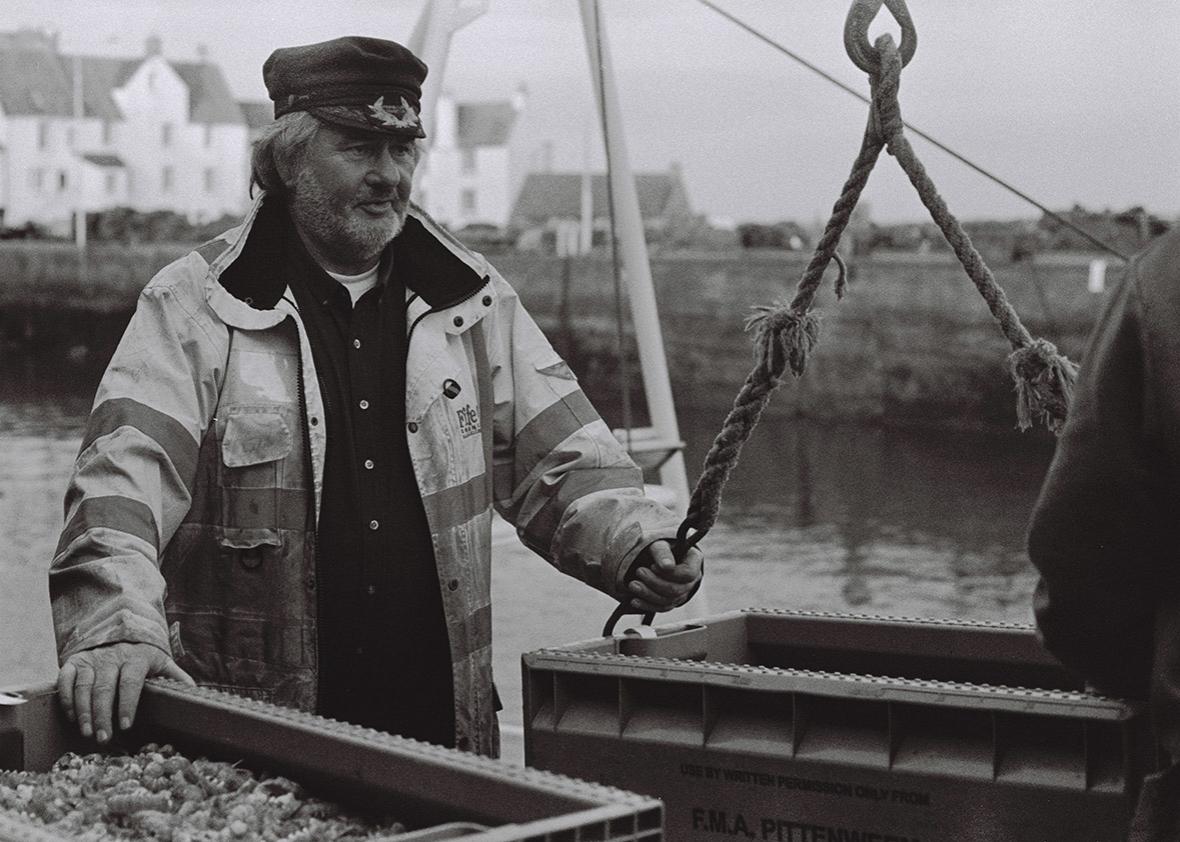
Denis Dobrovoda
The EU then divides its portion of the TACs between its own member states, with every country getting a quota for each species based on what is known as the relative stability key. This system, introduced in the early ’80s, awards a percentage of the TAC for each species based on factors such as a country’s catch levels before the introduction of the CFP and its economic dependency on the fishing industry as a whole.
“This is where Britain was fleeced,” claims Hastings. “When the relative stability key was set up, many European countries, especially France, fiddled their figures, securing high quotas that were disproportionate to their resources and waters.” “Leavers” believe that these quotas remain disproportionate to the present day.
However, “Remainers” say that there is no guarantee that Britain’s access to EU fishing waters would be any better post-Brexit negotiations. Elizabeth Truss, ex–secretary of state for environment, food, and rural affairs in the U.K., wrote in a recent op-ed: “It’s wishful thinking that outside of the EU we can get a better deal for our fishermen. Currently, the U.K. has only 13 percent of the EU’s total sea area, but we are allocated 30 percent of its total quota.”
* * *
The boat faces broadside to the waves. The water lunges and crashes into its hull, and it flaps like a rag doll.
“She has a shallow draft, this boat!” shouts James, as I inexpertly shimmy onto the deck. “She likes to move about.”
William, however, is unperturbed by the fierce wind and the violent rolls of the vessel. A few years back, he was washed overboard. “I fell off the boat when a big lump of water hit me as we were coming into the port,” he says, standing at the stern, his cigarette drooping from his mouth. “I got trapped between the hull and the harbor wall. I was lucky I wasn’t crushed.” William managed to swim into the harbor and climb one of the ladders to safety. “Somebody was looking out for me that day.”
Aside from Brexit, the dangerous nature of the profession is also taking a toll on the industry. Although safer than in years gone by, fishing is still fraught with risk. Nine fishermen were lost in the North Sea in the first six months of 2016, a higher mortality rate than even the waters around Alaska, purportedly the world’s most dangerous fishing grounds. Indeed, fishing in the North Sea has a fatal accident rate that is 52 times higher than any other job in the U.K.
“Sometimes, we work three days straight and get only a few hours’ sleep each day,” says James Clouston, a deep sea fisherman–turned–crabber from Orkney. “I remember feeling so tired sometimes I could have slept standing up, but I had to get on with it, because outside, it was blowing a force 10 gale, and I knew one false move, and I was overboard.”
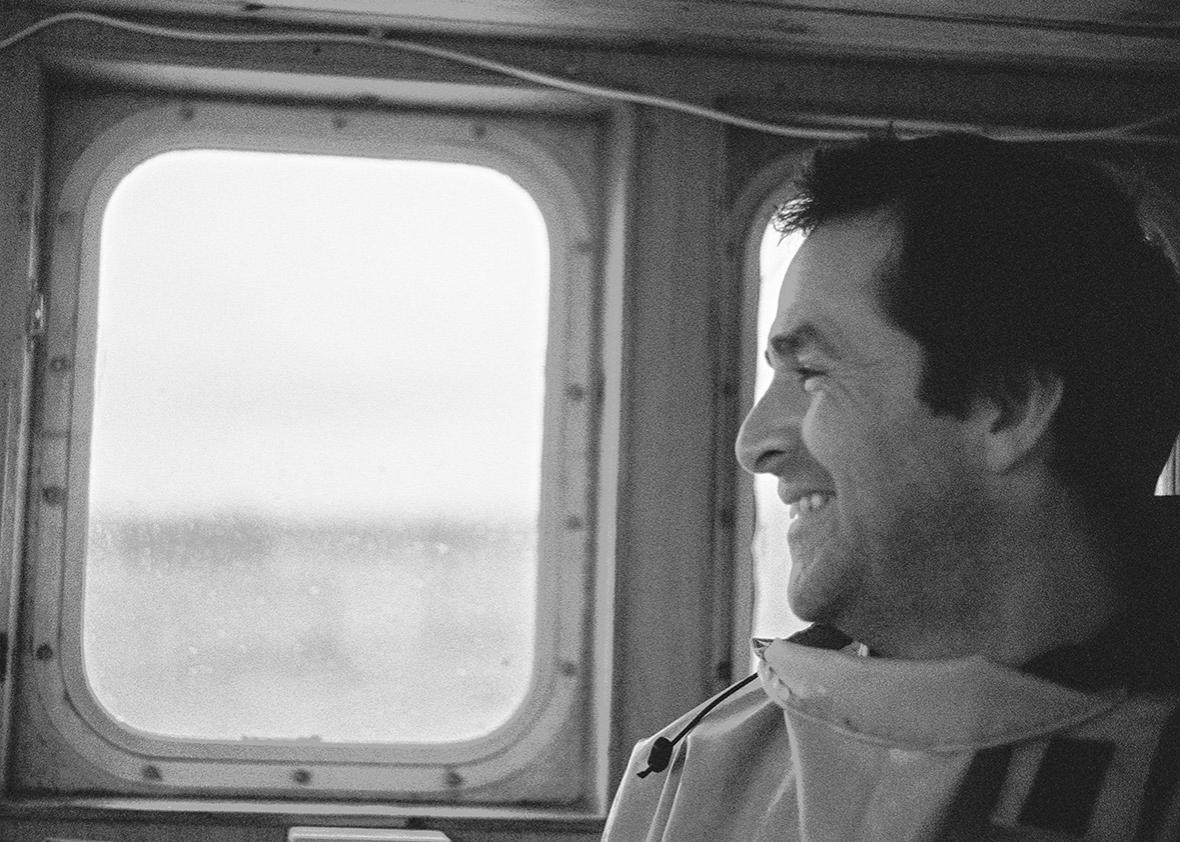
Denis Dobrovoda
It is a constant threat for a skipper whose job it is to keep his men out of danger. Unfortunately for my grandfather, when he was captain of the Procyon, bad luck combined with inclement weather. Dennis, his best friend and a North Sea stalwart, passed out during a storm and was swept overboard. The crew saw him go, but they couldn’t get to him in time.
My grandfather searched for his body for days on end. “In a fit of guilt and rage, he even went out by himself, searching the seas around the harbor,” my father told me. “He knew it was useless, but it hit him very hard.”
Dennis was never found.
The fear of death didn’t just plague the fishermen, however; it also affected their families. My grandmother remembers one day, after not having seen my grandfather for almost a fortnight, that a representative from the fisherman’s mission parked outside the house. She knew that this man never came when her husband was out.
My grandmother watched as the tall, spindly man walked from his car up to the front gate of her house. She remembers it was 11 o’clock in the morning, and she couldn’t move.
“I knew what was happening, but I did nothing. I just watched from the windae; my mind wis blank,” she told me.
The man stopped just before the front gate. He started examining the house number painted on the slate tile to the right of the door. He muttered to himself, looked up, and made his way to the neighbors.
My grandmother collapsed with relief. “It was so close to being the worst moment of my life.”
Then, she heard the screams from next door.
* * *
“Aye, you have to respect the sea,” says Jim, joining us on deck. ”The fear of harm is probably one of the reasons that young men just don’t want to come out here anymore. They look for safer jobs elsewhere.”
His ruminations stop there, as he has come from the wheelhouse to tell James and William that they need to get ready to haul in the nets.
“Well, we’ll see if you’re a Jonah now, won’t we?” Jim jokes, using the term used to describe a person who brings bad luck on a boat.
William takes up his place at the stern, James moves to the bow of the boat toward the winch, and Jim stays in the wheelhouse, watching over his sons and smoking.
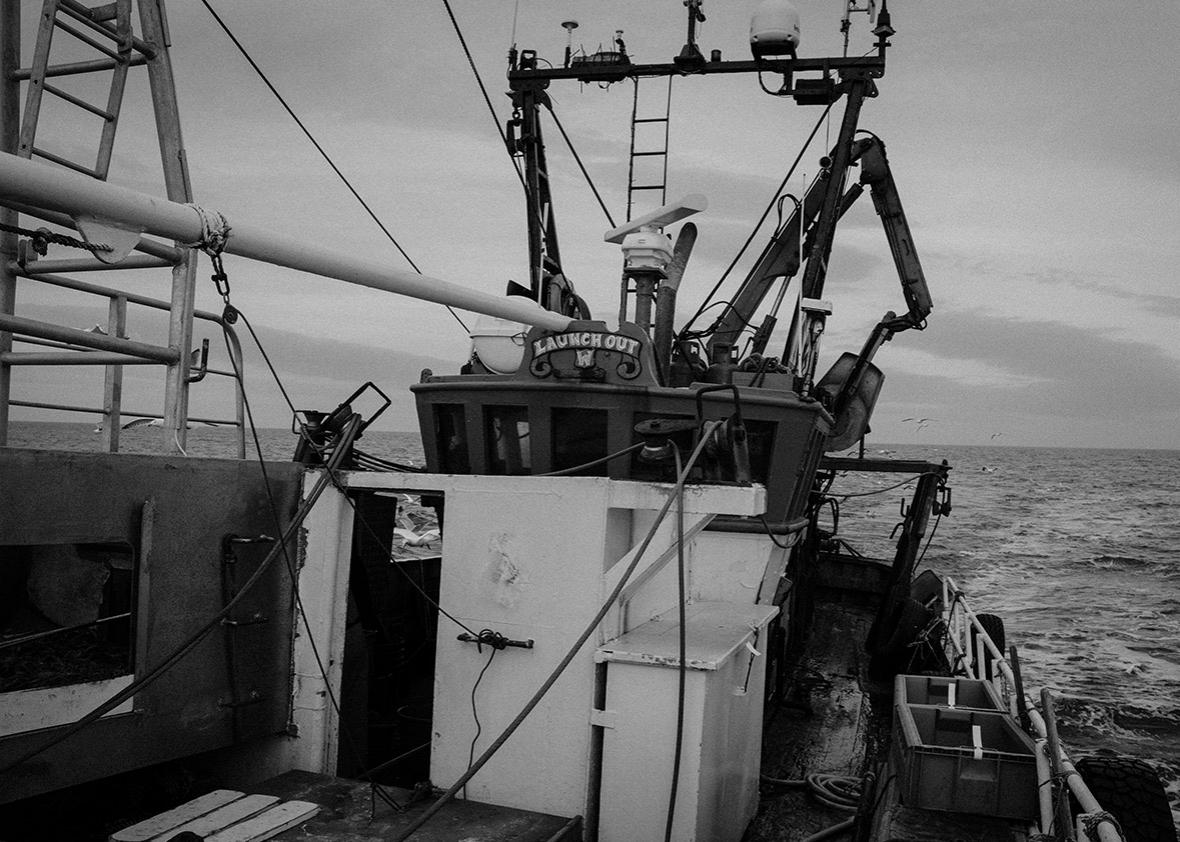
Denis Dobrovoda
The hydraulics chunter into life. The wires whir and howl, and the waves crash into the vessel’s hull, pushing William uncomfortably close to the stern edge of the boat. The winch sucks in the wires like spaghetti, until the trawl doors clang loudly into the Launch Out’s hull. From there, the motor hoists them up over the gunwale and onto the deck, where William ties them down. In the distance, the long green net breaks the surface, floating on the boat’s wake like seaweed.
At the bow, James rushes around the machinery. As the net emerges from the sea, sagging from the weight of thousands of prawns, it bounces against the starboard side of the boat, spurting torrents of water.
The winch on the power block strains to pull it up over the gunwale and to the hopper, where the fish are dumped for gutting. There, the cod end swings like a bulging coin purse until William, a long pole in his hand, undoes the knot, and the prawns crash to the metal floor.
“Well, one thing’s for sure,” shouts William, “you’re nae a Jonah.”
“Aye, that’s nae a bad haul,” says Jim, “and unlike our friends fishing for deep-sea white fish, we’ll nae have to chuck any of it out.”
“Chucking out fish,” or discarding, as it is known in the industry, is perhaps the most controversial part of the CFP. Each species of fish is subject to a specific quota, and each fisherman has a share of the U.K. quota for each species. Among demersal fishermen, in which boats go after species such as cod, haddock, halibut, and monkfish, skippers cannot always predict the type of fish they will catch. This means that if they have an individual quota for cod, for example, and they meet that quota in the first haul, all the cod they catch henceforth must be thrown back into the water.
Whereas 8 percent of catches are dumped every year globally, fisheries in Europe often discard as much as 70 percent. In 2009, Scottish vessels were required by the CFP to throw back almost 25 percent of their whitefish catch, worth 33 million pounds.
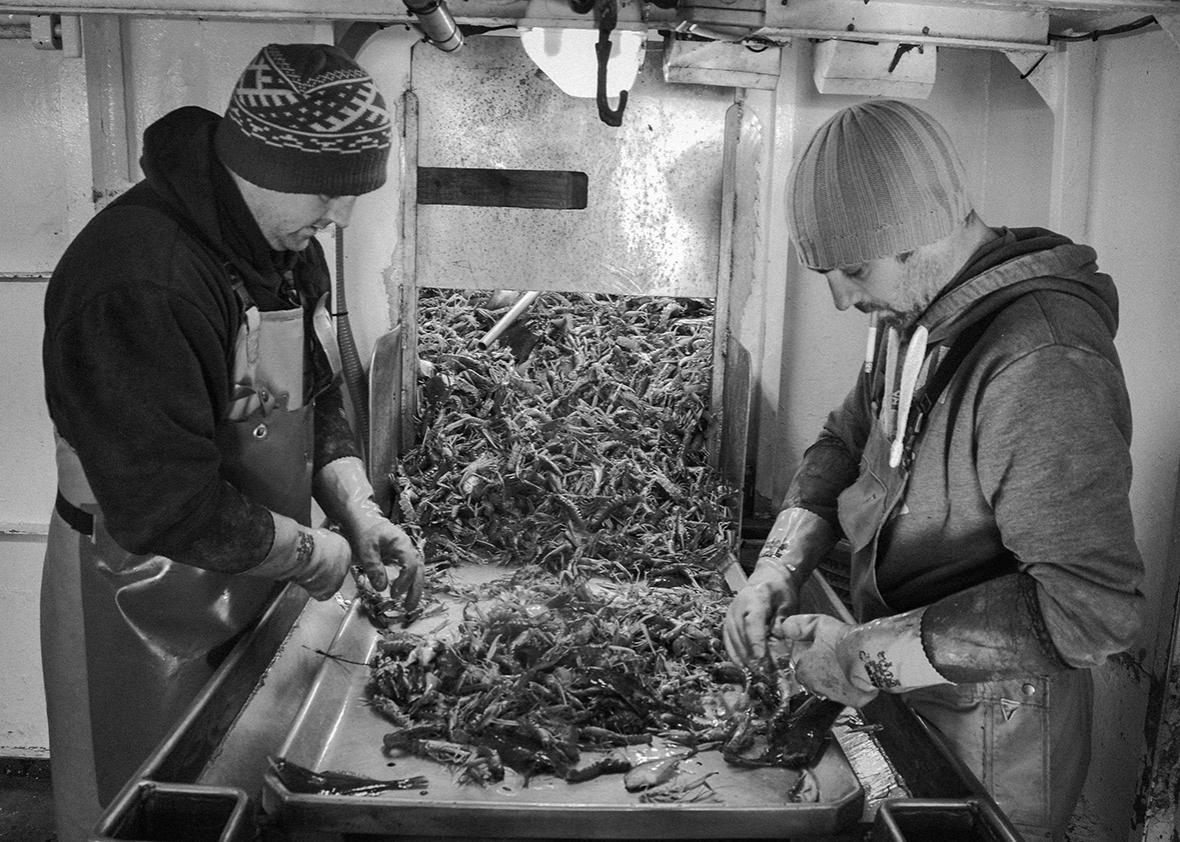
Denis Dobrovoda
“It’s ridiculous and unfair,” says James Clouston. “Once you’ve caught your limit of cod, you have to steam miles away to another area, searching for a different species of fish. But, if where you end up, you catch more cod, well, you have spent thousands of pounds extra on petrol, only to have to chuck the fish back.”
Although the policy’s aim is to conserve fish stocks, most of the species thrown back into the sea are already dead—suffocated, or squashed by the nets. In answer to this, “Fishing for Leave,” Alan Hastings’ group, is arguing for a system in which fishermen would be restricted by time on the sea, not quotas. Within this framework, the skipper would be given a specific number of days in which to fish per month. “This would allow fishermen to keep everything they catch instead of steaming all over the sea catching and throwing away fish, dictated by their quotas,” says Hastings.
The group believes such a system would increase profits for fishermen and, more importantly, stop discards: “Dead fish would not be thrown back into the sea in the name of conservation.”
* * *
The Launch Out moves forward at two knots and the water froths like beer around its rusted hull.
Fishing is monotonous and repetitive, and the day lurches forward at the steady pace of the vessel’s tow. The brothers shoot the gear, they haul it in, and then they shoot it out again. They do this all day and sometimes for days on end. And when they are not dealing with the nets, they are gutting the prawns. I watch as they sort through the catch.
“The larger ones they keep whole, the smaller ones we rip off the heads and preserve the tails,” says William.
James throws the decapitated heads down the discard shoot and back into the sea. On the starboard side of the Launch Out, a flock of gannets follows the boat in a cacophony of greedy cackles. They plunge into the murky sea like darts, squabbling and pecking over the leftovers.
“They’ll follow us back all the way to the harbor, greedy buggers,” he says.
As the two men shuffle and sort through the interminable pile of crustaceans, William tells me that most of this catch will end up on Continental plates. “Go to any Spanish supermarket, and you’ll probably see Scottish prawns,” he says.
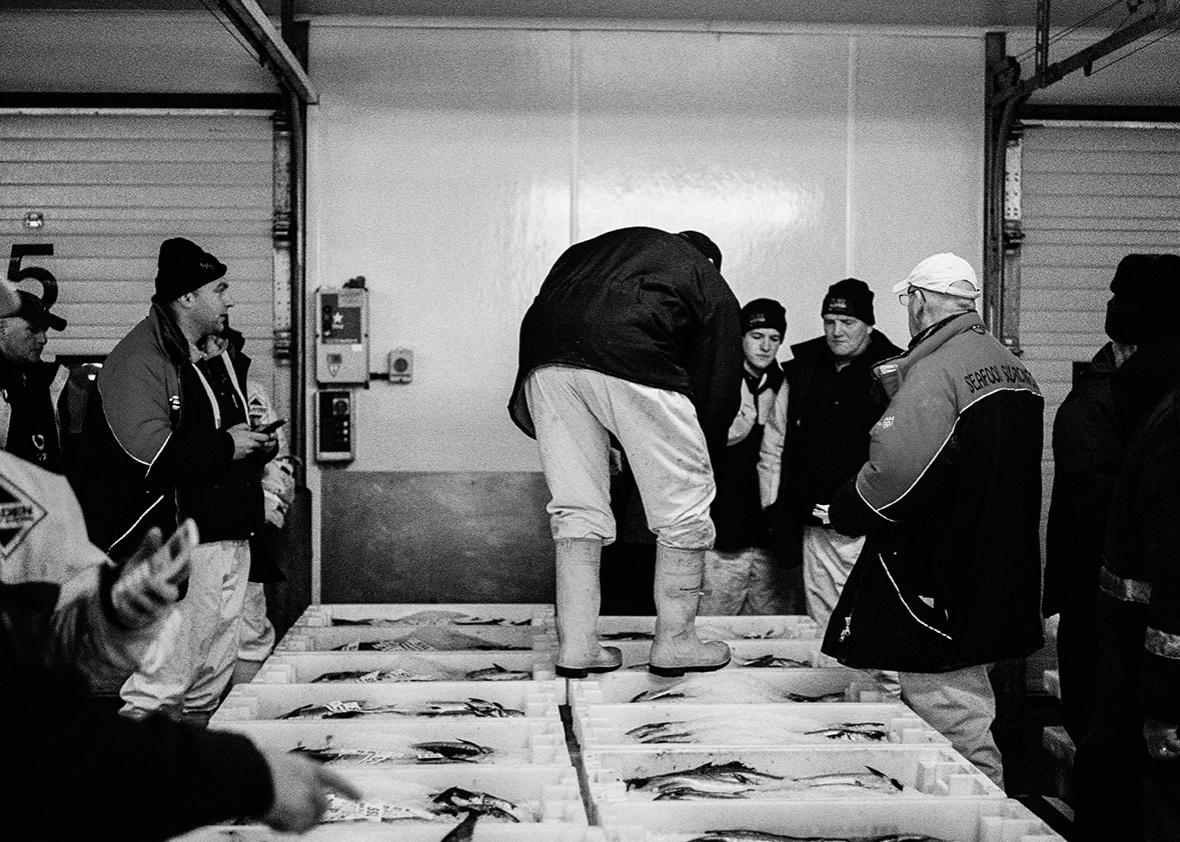
Buyers get ready for the auction. The auctioneer stands atop the boxes and shouts out the prices.
Denis Dobrovoda
It was something I’d learned the previous week at the port of Peterhead, one of Europe’s largest fishing ports. At the busy morning fish market, a 2,850-square-foot hall off the harbor, I watched as auctioneers stood at the head of mountains of white boxes, packed with haddock, cod, whiting, monkfish, and halibut. Bidders from Spanish and French companies followed them around the hall like schools of mackerel, hacking commands down their phones in a gob-full of mercantile gutturals. One Spanish salesman I spoke to there said that about 40 percent of the fish sold at the market went to Europe.
According to a recently published British parliamentary report, however, his estimate may have been conservative. The report, published in 2016, states that 75 percent of fish caught by U.K. fishermen are exported, most of it to the EU, at a return of 1.34 billion pounds. The fact that Alain Cadec, chairman of the EU’s fisheries committee, has warned that the British fish will suffer tariffs if it does not allow EU access to its waters is worrying for many “Remainers.” Some fear it may result in the industry’s collapse because of a reduction in demand for British products.
“It shouldnae affect us,” says James, down from the wheelhouse to help his sons. “We have a luxury product that is in high demand, and even if tariffs go up and make our prawn more expensive, we’re confident people will still buy it.”
But Jim can’t be as confident for the rest of the industry. “For those outside of the luxury market I couldnae say what will happen.”
All three men agree, however, that the little man will probably end up losing out. They say that Scotland’s fishing fleet is changing dramatically, dominated by commercially run enterprises that have the highest quotas and healthiest balance sheets, and that can afford to be fishermen. It’s all about maximizing profit.
“They employ cheap foreign labor, and price the smaller boats out of the market,” James concludes.
His thoughts remind me of Lossiemouth harbor, my grandfather’s home port. Walking around the harbor is not a happy experience for him now. Lossiemouth is a metaphor for the industry´s decline: a once bustling fishing port that is now empty of fishing vessels. “I remember a time when there wis so many boats that yi’ could walk across the harbor on their decks,” he told me forlornly.
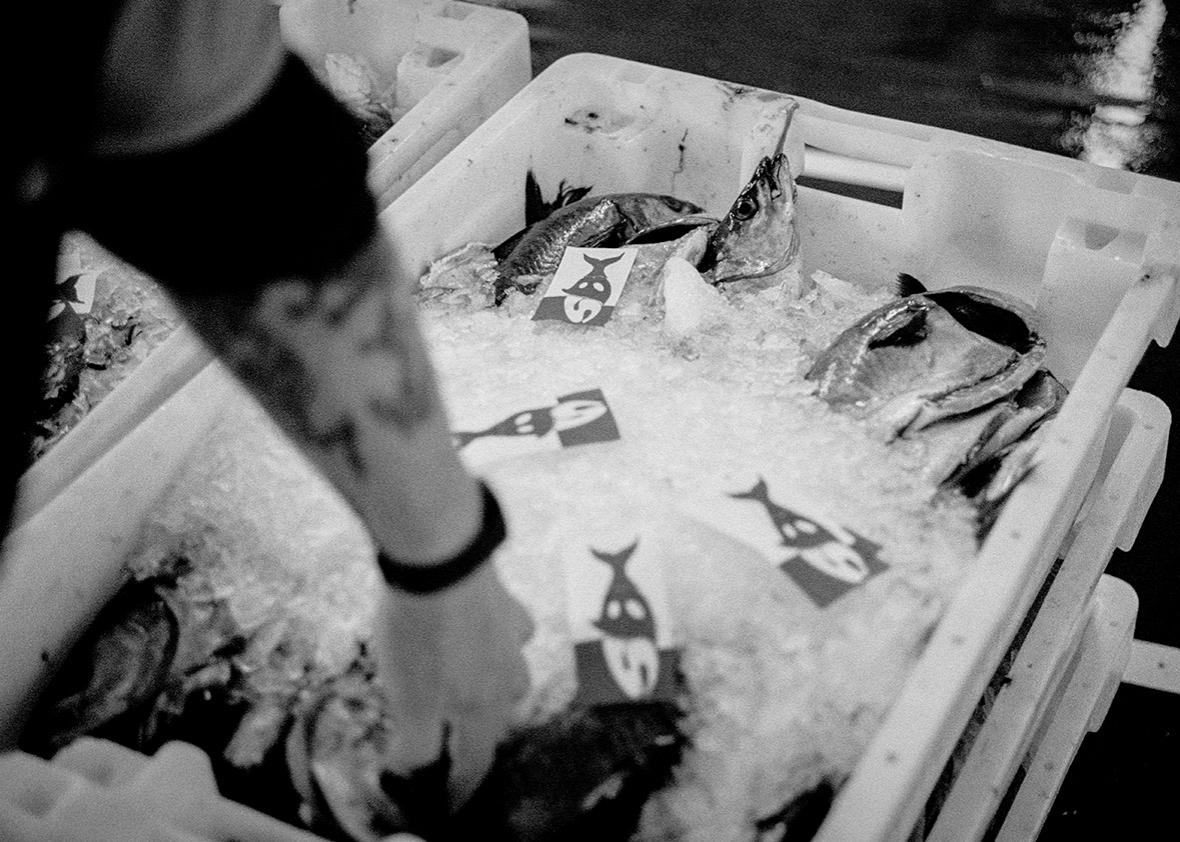
A buyer lays down his company’s stickers on a box of fish. This indicates that the fish is now the company’s property.
Denis Dobrovoda
Now, the harbor is a marina, littered with small white sailboats, pleasure cruisers, and neat hardwood jetties. The warehouses adjacent to the docks, which used to store nets, creel boxes, and other fishing ephemera, lie empty. The scene is leisurely, not the frenetic, mercantile atmosphere of my grandfather’s 40-year-old stories, when fishermen strode to market, up to their boots in fish guts and yarns, and where the pubs that surrounded the harbor were full with camaraderie and bitter rivalry.
For my grandfather, whose daily morning walk takes him past the port, this sight is both nostalgic and painful. It reminds him of a life that he dearly misses, but as the years pass and that life is further erased from the town, it is a world he sometimes fails to recognize.
* * *
At about 8 p.m. we see land again. The old town of Pittenweem, a collection of colorful and gunmetal-gray buildings, fills out the horizon. At its center, the harbor sprawls out into an expanse of warehouses, trucks, cars, medium-size trawlers, and squat creel boats loaded with brown crab.
When we reach port, the brothers moor the boat to the wall nearest the small fish market. On the quayside, official-looking men dressed in suits, frowning from behind their clipboards, gather around the boat. Other men, more casually dressed, busily pile white plastic boxes, tie chunky ropes, and mend nets.
Oblivious to the mounting commotion, the brothers hoist the boxes of prawns to the market workers via a small crane that perches like a heron at the edge of the dock. They empty the boat of some 20 boxes of prime Scottish langoustine.
“Right, that’s that, I’m off to my bed,” says William. “Eighteen hours is too long a time to be working.” James nods in agreement.
Looking over to the wheelhouse, however, I see Jim smiling. “We’ve no done badly today,” he shouts from the window, “which is good, because tomorrow could be a bloody disaster. You just never know in this job.”
Tomorrow the Wood family will once again rise at 3 a.m. to see what the future brings.
